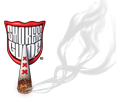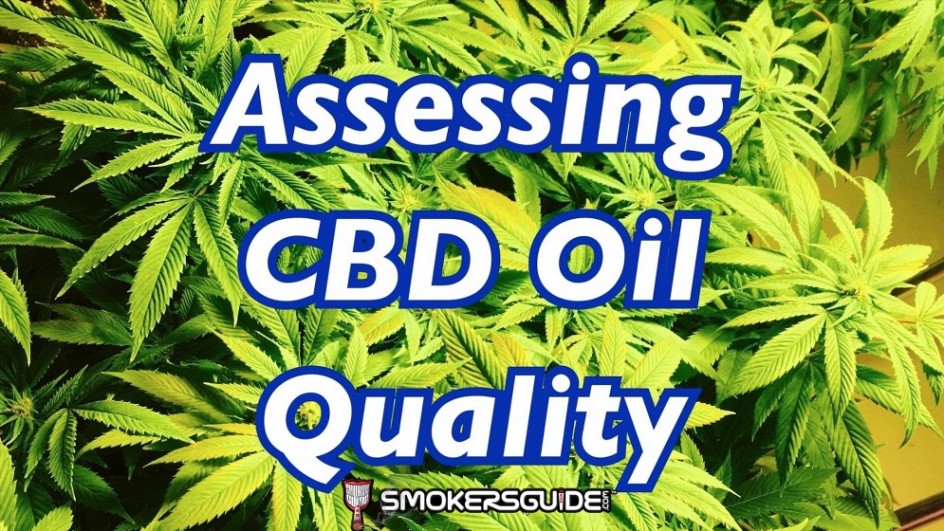These days, it is not difficult to find CBD in grocery stores, drug stores and convenience stores — but how do you know what you are getting from these CBD products?
Unfortunately, though cannabis is regulated to an intense degree, CBD is essentially unregulated in the American market. Some states impose some regulations on who can farm hemp and where, but generally, the quality of the products sold is left to manufacturers, retailers and consumers. As a result, some CBD products contain little to no CBD, while others have been found to contain a variety of harmful substances, like butane and lead.
If you are going to rely on CBD to improve or manage your health, you need to be certain that the CBD products you use will have the positive effects you expect. Here are a few ways to verify the quality of a CBD product before you buy.
Understand CBD Terminology
As you shop for CBD products, there are a few important terms you need to know, including:
Cannabinoid: a natural compound found only in cannabis.
Cannabidiol: what CBD stands for, the second-most plentiful cannabinoid, which offers a number of beneficial effects with no accompanying high.
Hemp: a variety of cannabis that contains only trace amounts of THC, making it ideal in the manufacture of CBD products.
Full-spectrum: CBD products that are barely refined and contain CBD as well as THC and other cannabis compounds to take full advantage of the entourage effect.
Broad-spectrum: CBD products that are slightly more refined to remove THC but contain other cannabis compounds.
Isolate: CBD products that contain no other cannabis compounds.
Extraction: the method by which CBD is separated from the cannabis plant material. The two most popular methods, CO2 extraction and ethanol extraction, each have advantages and disadvantages.
Potency: the measure of the response of a drug — a high-potency product provides a larger response at a lower dose, and a low-potency product requires higher doses for a similar effect.
Find a Reputable CBD Seller
Generally, it is a good idea to avoid CBD in grocery stores, drugstores and any other shop that is not dedicated to cannabis or cannabis-related products. You probably want to buy from a CBD store specifically because those responsible for acquiring inventory are more likely to know where to find the best-quality CBD products.
Look at the Ingredients List
To be certain that you are purchasing a product that contains CBD and not some other inert hemp product, you need to look at the ingredients list. A hemp product that does not contain CBD will likely list hempseed oil or cannabis seed oil as its first ingredient, while real CBD products typically have a carrier oil, like MCT oil or grapeseed oil, in the first position. Additionally, high-quality CBD products are likely to list the cannabinoids and terpenes included in the product, so you know which additional compounds your body will be absorbing.
Research Third-party Testing
Every CBD product should have a certificate of analysis, or COA, which shows that the manufacturer put the product through third-party testing to verify its CBD and THC levels and identify any potential contaminants. Though many states do not require third-party testing of CBD products, the most reliable CBD producers will always test their products and make the results of those tests available to consumers on their website.
Avoid Products Like These
There are two types of CBD products you always want to avoid:
CBD products that make sweeping health claims. Though CBD can have impressive effects, it is not a cure-all. Currently, research has found that CBD can be useful in managing seizures, pain, inflammation, anxiety and disordered sleep. Products that claim their CBD can provide dramatic changes to your health — like curing your disease or healing your body — are likely only trying to capitalize on the CBD trend and probably do not contain much of the active ingredient.
CBD products that contain propylene glycol or diacetyl. If you prefer to vape your CBD, you need to be wary of eliquids that contain ingredients that could cause you harm. Propylene glycol is a common ingredient for stabilizing vape juice, but at high temperatures, this compound degrades into formaldehyde. Meanwhile, diacetyl was closely associated with cases of popcorn lung in the mid 20-teens because it interacts poorly with cannabis compounds.
CBD works — but only if the product you use contains high-quality CBD. By knowing what to look for in the CBD products you buy, you can gain the relief you need.
SmokersGuide.com disclaimer:
SmokersGuide.com takes pride in featuring high quality articles to its readers, however does not assume liability for the claims and medical facts presented by the author. Please check with your doctor or medical practitioner, before consuming any products containing CBD, THC, herbs and Smart Products, or any other products recommended here. Make sure to always check for advised dosages, and please keep all THC and CBD products (including vapes, flowers, oils, concentrates or edibles) away from children, animals and any persons who may not desire to consume them. Make sure to clearly mark all products with warnings about the contents, and store all products in locked, child-proof containers, to avoid accidental ingestion. Please check your own country's laws regarding CBD and THC, and make sure shipping is allowed. SmokersGuide.com content is always created in countries where cannabis products are legal, for medicinal and/or for recreational uses. Smokers Guide does not encourage the use of cannabis in countries where its consumption is illegal.



 How to Smoke Weed Without and Reduce the Smell
How to Smoke Weed Without and Reduce the Smell  How to Assess the Quality of a CBD Product
How to Assess the Quality of a CBD Product  Health Tips: The Benefits Of CBD Oils And Other CBD Products
Health Tips: The Benefits Of CBD Oils And Other CBD Products  Choose the Right Online Dispensary With These Useful Tips
Choose the Right Online Dispensary With These Useful Tips  How to Relieve Your Work Pressure with the Help of CBD
How to Relieve Your Work Pressure with the Help of CBD  Can Full Spectrum CBD Cause Anxiety?
Can Full Spectrum CBD Cause Anxiety?  Everything You Need To Know About CBD and How To...
Everything You Need To Know About CBD and How To...  The Benefits of Water-Soluble CBD
The Benefits of Water-Soluble CBD 
